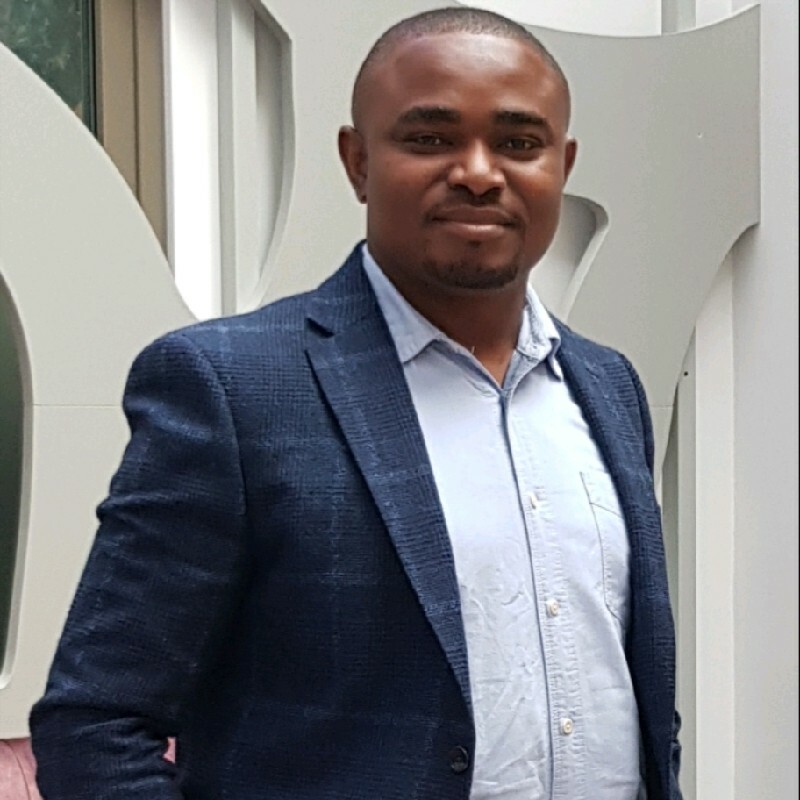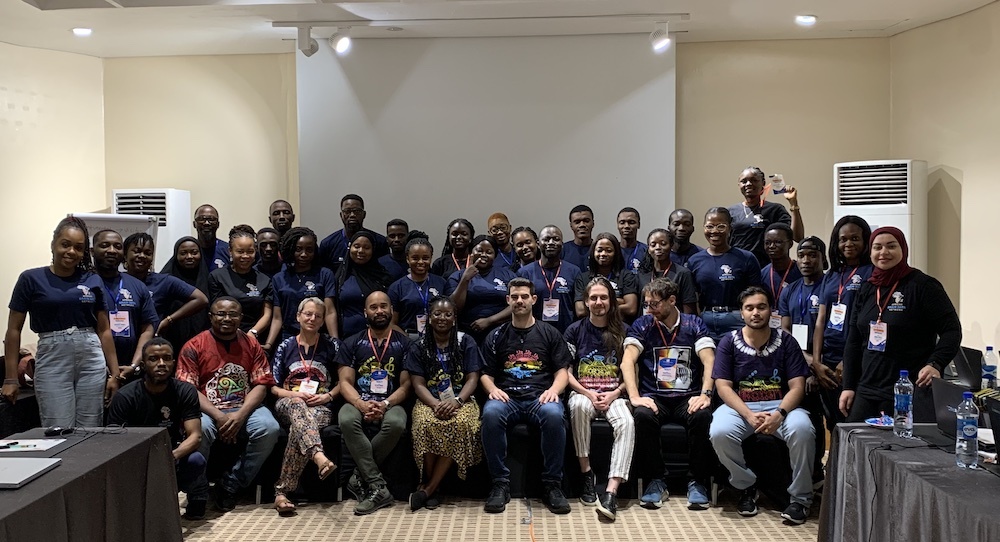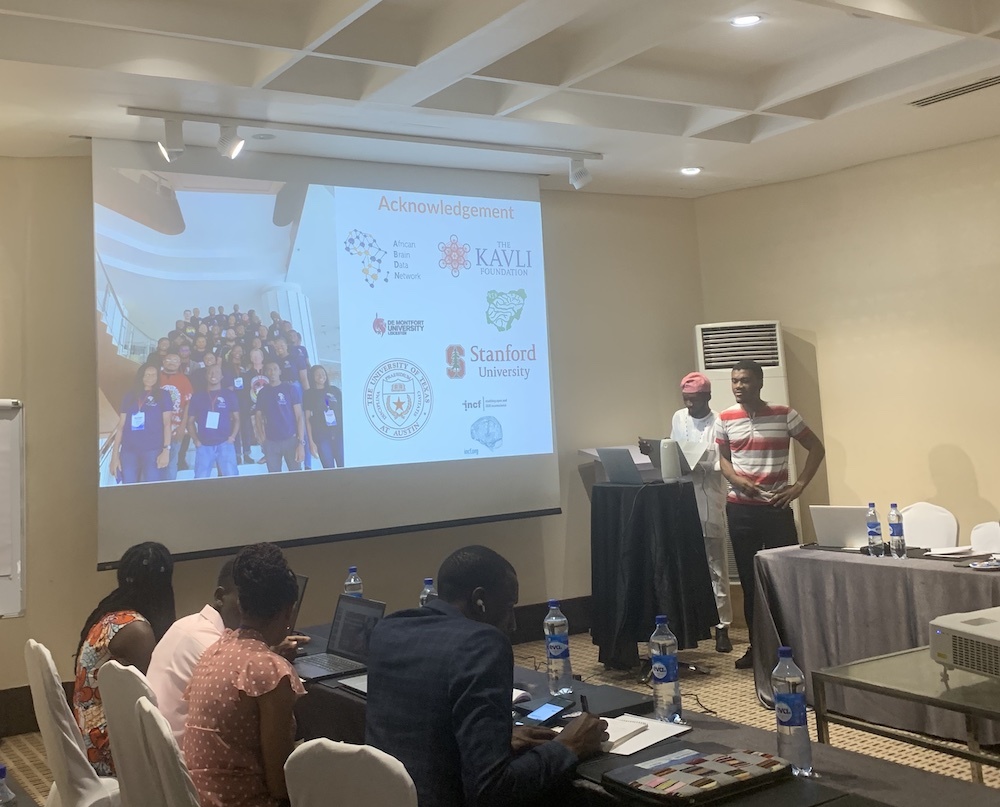Expanding MRI Research in Africa
by Laura Glass
The African Brain Data Network Academy

The Author
Africa is home to nearly 18% of the world’s population, yet it contributes less than one percent of global Magnetic Resonance Imaging (MRI) research. MRI is a fundamental technology for research scientists and clinicians to study the living brain, yet the scarcity of MRI brain data from African populations limits our knowledge. Very few MRI scanners exist in Africa for research purposes. Of the radiologists that can conduct these scans, most are trained to collect data for medical, not research, purposes. Numerous barriers prevent neuroimaging research in Africa, but limited funding for research, poor infrastructure and a lack of training to develop skilled neuroimaging researchers has ultimately led to a significant gap in the existence of brain data from African populations.

Dr. Damian Eke, an assistant professor at the School of Computer Science, University of Nottingham, UK, and former data governance coordinator for the EU Human Brain Project discovered this gap and knew he needed to do something to fix it. With a background in ethics of emerging technology and expertise in responsible data governance, he is the co-chair of International Brain Initiative’s Taskforce on data governance. Together with Dr. Eberechi Wogu of the University of Port Harcourt, Nigeria, Eke recognized a lack of Findable, Accessible, Interoperable, and Reusable (FAIR) neuroimaging data from Africa in open repositories. Using FAIR data is critical for neuroscience since it allows researchers to leverage high quality data for multipurpose use and discovery. Eke recognized that, by implementing better training for data collection, sharing, and use, he could increase the amount of FAIR data from the African continent, mentor the upcoming generation of researchers in Africa, and ultimately bolster the prevalence of neuroimaging data that encompasses the fullest range of the human brain.
Eke and Wogu co-founded the African Brain Data Network (ABDN) with the intention of revolutionizing neuroimaging research in Africa. The ABDN consists of stakeholders in academia, industry, policy, and funding who are working together to generate, process, and share African brain data for research and innovation. With support from The Kavli Foundation and in collaboration with the Neuroscience Society of Nigeria, Eke developed a two-week training program, called the African Brain Data Science (ABDS) Academy. Modeled after the NeuroHackademy organized by Dr. Ariel Rokem at the University of Washington, the ABDS Academy aims to teach early-career researchers in Africa about the importance of FAIR data and provide practical sessions about the application of data science in neuroimaging analysis.

“The African Brain Data Science Academy is the first step in shaping the future of brain research in Africa, in a way that can influence global practices," said Eke.
In late 2023, the first ABDS Academy was convened in Nigeria. The two-week training workshop focused on expanding access to neuroscience research infrastructure, training, and diverse datasets. It was the first program of its kind in Africa to focus solely on African participants and needs. Out of more than 300 applicants from 16 African countries, 45 participants were selected to participate virtually and in-person to learn from global experts, discuss how to integrate data science techniques with neuroimaging research, and to experience hands-on training with computational tools.
It's no surprise that, because of the success of this inaugural meeting held in Nigeria, researchers in other African countries have contacted Eke with hopes he will host future ABDS trainings in other countries. Recognizing the positive short- and long-term impacts of the 2023 workshop, Eke is making plans for a 2024 Academy. The existing curriculum will be updated to include neurophysiology data and additional hands-on training opportunities. Many faculty members who participated remotely in the 2023 Academy are planning to attend the 2024 Academy in-person.

“Researchers from Africa are interested in integrating novel technologies into their neurology research and, with the expansion of the ABDS Academy, I am eager to continue building the next generation of brain data scientists and address the shortage of experts in the field within Africa,” said Eke. By increasing the availability of African brain datasets in open, online repositories, he hopes researchers, scientists, and doctors will better understand disease, and ultimately treatment, in the African population.
"The Kavli Foundation is proud to support important activities like the ABDS Academy,” says Science Program Officer Dr. Stephanie Albin. “Through the concerted efforts of individuals like Eke, neuroimaging research in Africa is undergoing a transformative shift: more students will learn about FAIR principles, collect neuroimaging data, and harness existing infrastructure to advance brain research. ABDN is paving the way for researchers to advance our understanding of the brain and ultimately address treatment of disease in Africa and beyond.”
